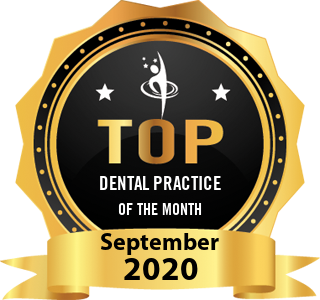TMJ disorder treatment helps jaw pain, headaches, and other symptoms in Wichita, KS
By Dr. David Koepsel
Symptoms and causes of TMJ disorder
Your temporomandibular joints are a set of joints that connect your jawbone to your skull and are important in making your jaw work properly as you talk, chew food, and smile throughout the day. You shouldn’t even need to be aware of them, but these joints can cause unpleasant symptoms of TMJ disorder when they are not optimally functioning.
The list of possible TMJ disorder symptoms is very long and each individual patient’s symptoms can be different. However, some of the most common symptoms that patients have are:
- Headaches that don’t have another identifiable cause
- Clicking or popping sounds when you open or close your mouth
- Jaw pain when you wake up in the morning or when you chew or bite down
- Jaw stiffness or inability to easily open or close your mouth
- Signs of wear on your teeth that don’t have an obvious source such as gum disease or decay
- Neck, ear, or shoulder pain
New Patients - (316) 215-7152 | Existing Patients - (316) 686-7395
Or
Request an Appointment
Treatment for TMJ disorder

Based on what the dentist sees in the examination, he will recommend one or more treatment options tailored to your individual condition. Several types of treatment options can be effective in eliminating the source of your TMJ problems:
- Oral appliance: Many times, a special mouth guard that is custom-designed for your mouth can eliminate your TMJ issues. The appliance works by properly aligning your jaw and relieving the pressure that is placed on the temporomandibular joints. It is typically worn at night, but in some cases, it may need to be worn during the day. The appliance can reduce your headaches, protect your teeth from being damaged, and eliminate the stress on your joints for overall improved quality of life.
- Lifestyle changes: Simple lifestyle changes can also have a dramatic impact on your TMJ disorder. These include using ice packs to reduce inflammation, refraining from eating hard foods to allow your joints to heal, performing specific jaw exercises to stretch your jaw, and not chewing gum.
- Reduce stress: Stress management can also be an important part of your treatment plan. When you are stressed, you are more likely to clench your jaw and grind your teeth, so the dentist can discuss strategies to help manage your stress.
- Other treatments: Several other treatment options for TMJ disorder are also available, such as medications, injections, laser therapy, and in some cases, surgery.

Our Special Offers
Office Hours
Tuesday
Wednesday
Thursday
Friday
8:00AM-6:00PM
8:00AM-6:00PM
8:00AM-6:00PM
Closed
-
Rating: 5

Dr. David Koepsel
Reviewed by Marie K.
Such an amazing dental office! The staff is so nice and welcoming. I felt right at home. They used sedation dentistry on me and it took all the fear from me and it didn't even hurt. I have never met a dental office that is so easy to talk to! Love them





